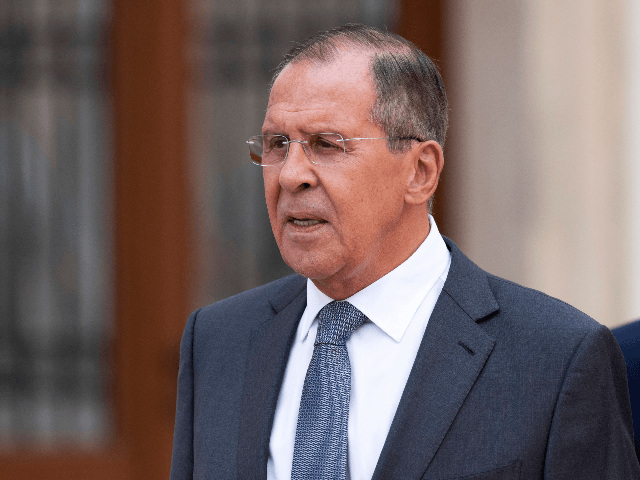The Chinese Foreign Ministry announced Thursday that Russian Foreign Minister Sergey Lavrov will visit China on Monday for talks with Chinese Foreign Minister Wang Yi, who just met with U.S. diplomats in Alaska.
The South China Morning Post (SCMP) quoted diplomatic observers who expected Lavrov and Wang to work on a joint Chinese-Russian response to U.S. foreign policy under the Biden administration:
“The international situation has undergone great changes,” said Yang Jin, an associate research fellow at the Institute of Russian, Eastern European and Central Asian Studies at the Chinese Academy of Social Sciences.
“With shifts in the policies of US and Western countries towards China and Russia, the strategic partnership between China and Russia needs to be reflected and upgraded.”
Yang said the two countries would discuss how to strengthen coordination on regional and major international issues.
Yang anticipated the Wang-Lavrov meeting would synchronize Beijing and Moscow’s position at the United Nations on matters like the Iran nuclear deal, North Korea’s nuclear weapons programs, the junta in Myanmar, the coronavirus, and climate change.
Increasing military cooperation between Russia and China will probably be on the agenda as well, even though the Chinese Foreign Ministry publicly claims it has no interest in a military alliance with Russia against the U.S. and the North Atlantic Treaty Organization (NATO).
Russian President Vladimir Putin’s public stance on military cooperation is that he supposedly feels it is unnecessary at present but could become important in the future.
Skeptics of these public statements believe China and Russia are already working together more than they admit, especially in areas where they feel mutual antagonism toward U.S. objectives, such as their support for brutal dictator Nicolás Maduro of Venezuela.
One interesting point of turbulence in the relationship between Beijing and Moscow is China’s Belt and Road Initiative (BRI), which Russia tepidly supports diplomatically as an international infrastructure plan but privately fears as China’s imperial gambit for control of the Third World. Sometimes the Russians appear to regard BRI as an opportunity for financial and diplomatic gain, and sometimes they fear it as a Chinese bid for hegemony that could permanently relegate Russia to junior-partner status at best.
The recently announced agreement between Beijing and Moscow for joint development of a lunar research station was taken by some observers as the Russians making their peace with that junior-partnership position with Belt and Road. The Russians may have concluded BRI is their best hope for countering American and European economic influence, and a means for Russia to tap into both the Chinese and European economies. The coronavirus pandemic slowed Belt and Road down considerably, so this might be the best time for Russia to climb fully on board.
Geopolitical analysts told the South China Morning Post on Friday that mutual hostility toward the United States has hardened enough to become a solid foundation for a closer Chinese-Russian partnership.
Retired China Foreign Affairs professor Yang Chuang thought Lavrov’s visit next week would be a good opportunity for China and Russia to “reinforce their strategic coordination on international issues, discuss Biden’s foreign policies and, more importantly, develop a back to back and shoulder to shoulder relationship, which is much stronger than just an alliance.”
Russia could also be making a play for more U.S. concessions by pretending its displeasure with Washington is driving it into the arms of imperial Beijing.
U.S.-Russian tensions are supposedly ratcheting up, with President Joe Biden agreeing in an interview that Putin is a “killer” and Putin responding with schoolyard-bully taunts at the frail American president. Behind the theatrics, the Biden administration made concessions to Moscow that were so generous the Russians were taken aback, reversing former President Donald Trump’s pattern of uncomfortably chummy rhetoric toward Putin but tough stances on key issues.
If the Biden team has dreams of resuming the Barack Obama-Hillary Clinton “reset with Russia,” as some observers believe they might, Putin would be shrewd to cozy up to China and raise the price for improving relations with the United States.

COMMENTS
Please let us know if you're having issues with commenting.